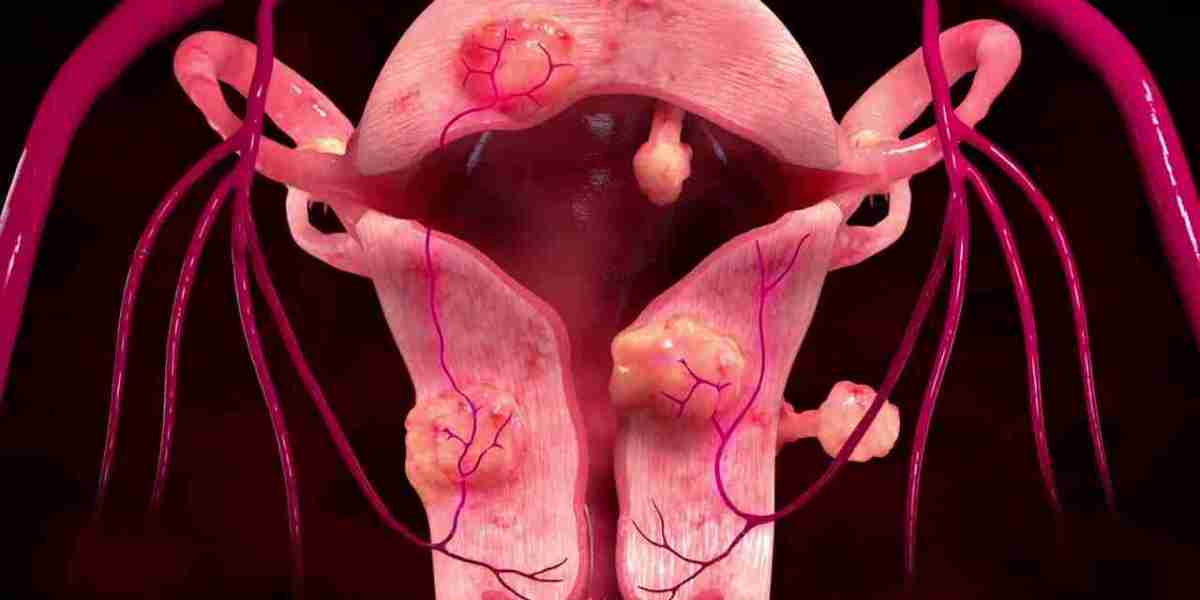The Uterine Fibroid Treatment Market is experiencing a shift toward more holistic, natural, and alternative therapies as patients increasingly seek options outside of conventional surgery and pharmaceuticals. Uterine fibroids, benign tumors in the uterus, affect a significant portion of women and can lead to debilitating symptoms like heavy menstrual bleeding, pelvic pain, and infertility. While surgical treatments such as hysterectomy and myomectomy remain effective for many, there is a growing interest in herbal, nutritional, and holistic approaches to managing fibroids, driven by the desire for non-invasive, lower-risk treatments and a focus on overall well-being.
Herbal Approaches to Fibroid Treatment
Herbal treatments have gained popularity as part of a broader movement toward natural health remedies. Many herbs are believed to influence hormone levels, which play a key role in the growth of fibroids. Chasteberry (Vitex agnus-castus), for example, is often used to balance progesterone levels and regulate menstrual cycles, making it a popular choice among women with fibroids. Similarly, green tea extract and milk thistle are commonly used for their purported antioxidant and detoxification properties, which may help reduce the size or growth of fibroids by supporting the body’s natural hormonal balance.
Herbal treatments are generally considered safe when used appropriately, and they are increasingly included in integrative care plans alongside more conventional therapies. However, their effectiveness varies, and more research is needed to confirm the long-term impact of these treatments on uterine fibroids.
Nutritional Approaches and Diet Modifications
In addition to herbal remedies, nutritional approaches are gaining traction as a potential way to prevent or manage fibroid growth. A balanced diet rich in vitamins, minerals, and antioxidants can help support hormonal balance and reduce inflammation, which is believed to contribute to fibroid development. Women with fibroids are often advised to consume a diet high in fiber, healthy fats, and anti-inflammatory foods, such as omega-3 fatty acids, leafy greens, and berries. Reducing the intake of red meat and processed foods, which are linked to higher estrogen levels, may also play a role in managing fibroids.
Some studies suggest that vitamin D, green tea, and certain flavonoid-rich foods might help slow fibroid growth by targeting the pathways involved in fibroid cell proliferation. While these dietary modifications are not a cure for fibroids, they may be effective in supporting overall reproductive health and managing symptoms.
Holistic and Lifestyle Approaches
Beyond herbal and nutritional strategies, holistic approaches to uterine fibroid care are becoming more popular. These approaches focus on the overall health of the body and mind, recognizing the interconnectedness of physical, emotional, and mental well-being. Acupuncture, yoga, and stress management techniques like mindfulness meditation are increasingly being used to alleviate fibroid symptoms. Acupuncture, in particular, is believed to help balance hormone levels and improve blood flow to the uterus, which can reduce pain and swelling associated with fibroids.
Furthermore, lifestyle modifications such as maintaining a healthy weight, regular physical activity, and reducing exposure to environmental toxins (which can disrupt hormonal balance) are also recommended as part of a holistic treatment plan. The growing interest in these approaches reflects a broader trend in patient care that emphasizes wellness and preventive measures rather than solely focusing on the treatment of disease.
Conclusion
The Uterine Fibroid Treatment Market is witnessing a rise in the use of herbal, nutritional, and holistic approaches to fibroid care, reflecting a growing demand for non-invasive, natural therapies. While conventional treatments like surgery and medication remain essential for many women, the integration of alternative therapies offers a promising option for managing fibroids and improving quality of life. As research continues to explore the efficacy of these treatments, the uterine fibroid treatment market will likely continue to evolve, offering women more diverse and personalized care options.




vikashprajapati 35 میں
9110159491 call mi I am India